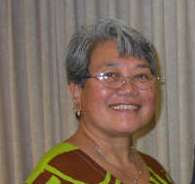 Mai lilo 'oe i puni wale, o lilo 'oe i kamali'i.
Mai lilo 'oe i puni wale, o lilo 'oe i kamali'i. Pukui 2077
Do not believe all that is told you least you be (led as) a little child.
Don't be gullible: scan, weigh, and think for yourself.
Although we are inundated by information, traditional Hawaiian wisdom is still applicable to our lifestyles. In the old ways, the young were told to observe, listen, and emulate actions of the elders. By doing these things, traditional arts and skills were preserved. Observation was a key component to learning. It is amazing how much scientific information was gathered through observation. Knowledge of the skies, the ocean, agriculture, aquaculture, conservation...all through observation and collection of data through memory.
Perhaps the problem with our educational system places too much emphasis on words and numbers instead of placing emphasis on observation and gathering of data and then analysis. Too many students are waiting to be told what to think. What is needed is for the students to learn how to think. Traditional practices focused on hands on learning. How was theory connected to practice? How could we put practice to work to serve and benefit us? Let's see...Let's do it.
Although the internet is a wealth of information, learners need to get real. Try things out. Observe nature and enhance what is known. Make something. Build something. Put imagination into concrete representation.
Schooling seems to squeeze individual thinking out of kids. Color within the lines. Trees are always green. Sit in your seat. Use your right hand. Raise your hand if you have the correct/appropriate answer. Stand in single fine. Visual and kinesthetic learners don't have a prayer in school where linguistic and numeric learners reign supreme.
We cannot change a huge bureaucracy like a national educational system unlike what No child Left Behind seems to think. We need to start at home with our children to encourage them to be better thinkers and doers. Parents must be the best teachers to cultivate the best learners for our future.



